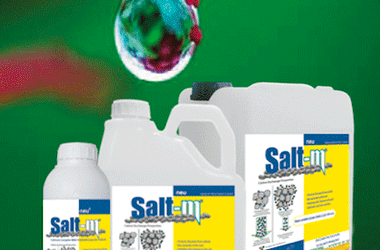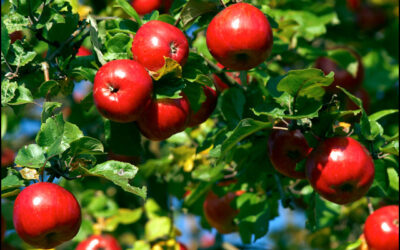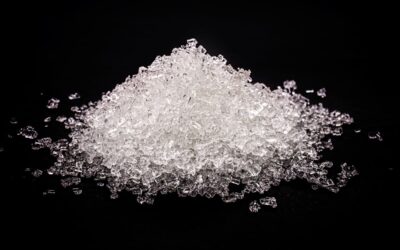Sulphates
Sulphates are given to the soil to grow plants and products in the agricultural sector, thereby making production much healthier. It contributes to the supply of fertilizer required in the production of various foods such as tea, citrus fruits and corn. For these reasons, Sulphates can be used all over the world, such as Kuwait, Albania, Georgia, Vietnam and Macedonia in accordance with all climatic conditions. In this article, we will talk about the most commonly used sulphate types in agriculture.
Ammonium Sulphate
Ammonium Sulphate is a fertilizer containing 21% ammonium nitrogen (N) and 24% sulfur (S) in the form of sulphate. It is also known as “Sugar Fertilizer” among farmers due to its crystal structure. Thanks to the sulfur in its content, the sulfur requirement of the plants can be met. For this reason, ammonium sulphate can be used as a base fertilizer as well as top fertilizing. In addition, since the nitrogen in its content is in the form of ammonium, it has an effect of increasing the uptake of phosphorus in the soil.
During the conversion of nitrogen in the form of ammonium to nitrate, the pH decreases over time, and soil acidity increases in long-term use. For this reason, calcification should be paid attention to and should not be neglected in intensive use. In general, on soils with high acidity (low pH), 33% Ammonium Nitrate fertilizer should be applied instead of Ammonium Sulphate.
Ammonium Sulphate is grown in all soils that are not acidic. It can be easily applied as a top fertilizer on trees and vegetables. It is used extensively by our farmers, especially in paddy farming.
Iron Sulphate
Iron sulphate, also known as Ferrous sulphate, is a chemical compound containing the element iron and the sulphate radical (sulfur and oxygen). It has a green crystal structure. Iron is one of the critical elements for plants, just like in human and animal life. Iron is an essential element for the formation of chlorophyll, the part of the plant that allows it to take in carbon dioxide and give off oxygen. The plant will meet its iron need from the soil, and in case of its deficiency, the development of the crop will stop and its yield will decrease. Iron sulphate is the most suitable fertilizer when iron supplementation is required in the soil.
The iron sulphate product provided by Sulfert Kimya contains at least 20% iron. In this way, the iron needs of young leaves and new shoots are met. At the same time, it meets the sulfur requirement of the plant with its sulphate content.
Zinc Sulphate
Zinc sulphate plays a catalytic and essential role in enzyme reactions in plants, as well as affecting protein synthesis, carbohydrate metabolism and membrane durability. The low level of useful zinc in the soil is related to low soil temperature, presence of free lime, low organic matter and high phosphorus level. The high level of useful phosphorus in the soil causes zinc deficiency in the plant at low temperatures in soils with a medium level of zinc, but this deficiency is not observed at high temperatures.
Potassium Sulphate
Potassium sulphate is an important nutrient for plants. Potassium sulphate fertilizer also contains 18% sulfur in sulphate form. Sulfur is an important nutrient, just like nitrogen, phosphorus and potassium, and is found in the structure of proteins in plants. Potassium sulphate has many benefits for plants.
Potassium deficiency is mostly seen in irrigated agriculture and rainy regions. Potassium sulphate fertilizer should be given to sandy soils that are poor in organic matter. It is mostly used in potatoes, tobacco, vegetables, fruits, citrus fruits, legumes, corn, cotton, sugar beet and greenhouses. If it is not given in sufficient amount, yellow or reddish brown spots can be seen on the parts of the green leaves of the plants.
Potassium balances the acid-sugar ratio in the fruit, affects the coloring, increases the taste and odor, and minimizes the fruit drop problem. It provides increased endurance against frost and cold.
Copper Sulphate
Copper sulphate is used in many stages of production, from agriculture to animal husbandry. However, the area where it is most used among the people is in the form of medicine as a preventative from diseases in fruits and vegetables. When applied to the trunks of hard woody trees, it provides protection against fungi and parasites. This mixture, which is also used against pests, provides great benefits for producers. Copper sulphate is used in anhydrous form as an additive for fertilizers and foods, also as an animal nutritional supplement.
Magnesium Sulphate
Magnesium sulphate is an ideal food source for plants that need magnesium. However, it contains a high amount of sulfur. Magnesium is the main component of the green color (chlorophyll) in plants, and it encourages the plant to benefit from the sun’s rays to the fullest extent and ensures the formation of healthy and dark green leaves. In this aspect; It is a plant nutrient that has a decisive effect on the photosynthetic power of the plant, its capacity to accumulate dry matter, and ultimately on yield and quality. Plants that do not get enough magnesium do not produce enough chlorophyll and the green color in the plant gradually disappears. In this case, the ability of photosynthesis disappears, the growth and development of the plant stops. Magnesium sulphate is the fertilizer with the highest magnesium content.



